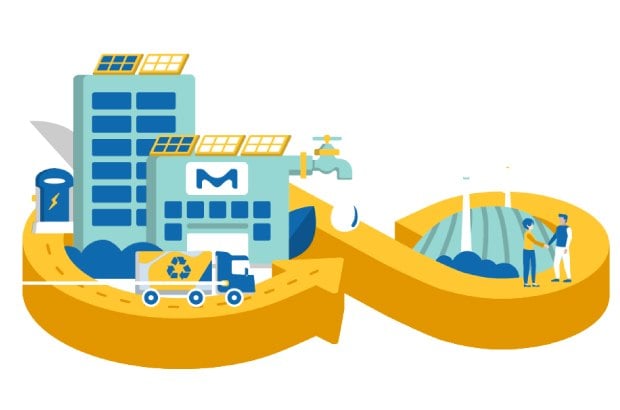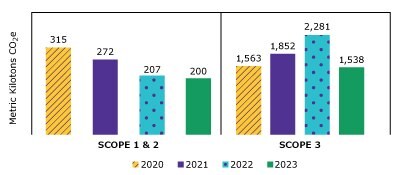Sustainable Operations
ENHANCING OUR OPERATIONS AND SUPPLY CHAIN
Our Sustainable Operations pillar includes targeted efforts towards reducing the environmental impact of our value chain. From reducing greenhouse gas emissions, energy, water and waste impacts associated with our operations at our 60+ manufacturing sites, to sharing these best practices with our suppliers and helping them drive progress, we take a comprehensive approach, embedding sustainability into how we do business.
Key impact areas include:
- Greenhouse Gas Emissions (Scope 1, 2, 3)
- Energy & Water efficiency
- Waste & Wastewater Management

We measure progress against our targets and have defined focus areas which drive improvement across the value chain.
Our Goals and Progress
- By 2030, reduce Scope 1 & 2 emissions by 50% compared to our 2020 baseline and by 2040, achieve climate neutrality. To date, we have achieved a 37% reduction.
- By 2030, reduce our Scope 3 emissions by 52% per Euro of gross profit compared to our 2020 baseline, and achieve climate neutrality by 2040. To date, we have achieved a 20% reduction.
- 80% of our purchased electricity will come from renewable sources by 2030. We are currently at 76%.
- By 2030, reduce water intake per Euro of net sales by 57% at all production sites. To date, we have achieved a 26% reduction.
- By 2030, achieve a waste circularity rate of 67%. To date, we achieved 62%.
- By 2030, manufacturing wastewater effluents shall be below predicted no effect concentrations.

A bar chart of our company greenhouse gas emissions from 2021 - 2023, compared against our 2020 baseline.
Focus Areas
- Supply chain and logistics decarbonization
- Offsite renewable energy procurement
- Responsible sourcing
- EDISON—our energy and water efficiency program
- Process decarbonization
- Recycling and waste avoidance
- CapEx sustainability governance
- Product carbon footprinting
These focus areas enable us to drive progress on our sustainability strategy - reducing our Scope 1, 2, and 3 emissions, managing water consumption, and embracing a circular economy.
To continue reading please sign in or create an account.
Don't Have An Account?